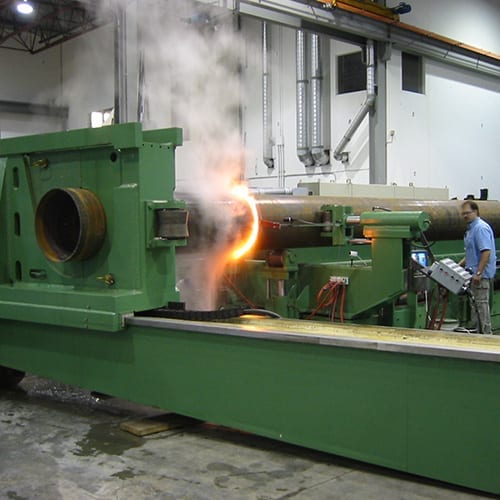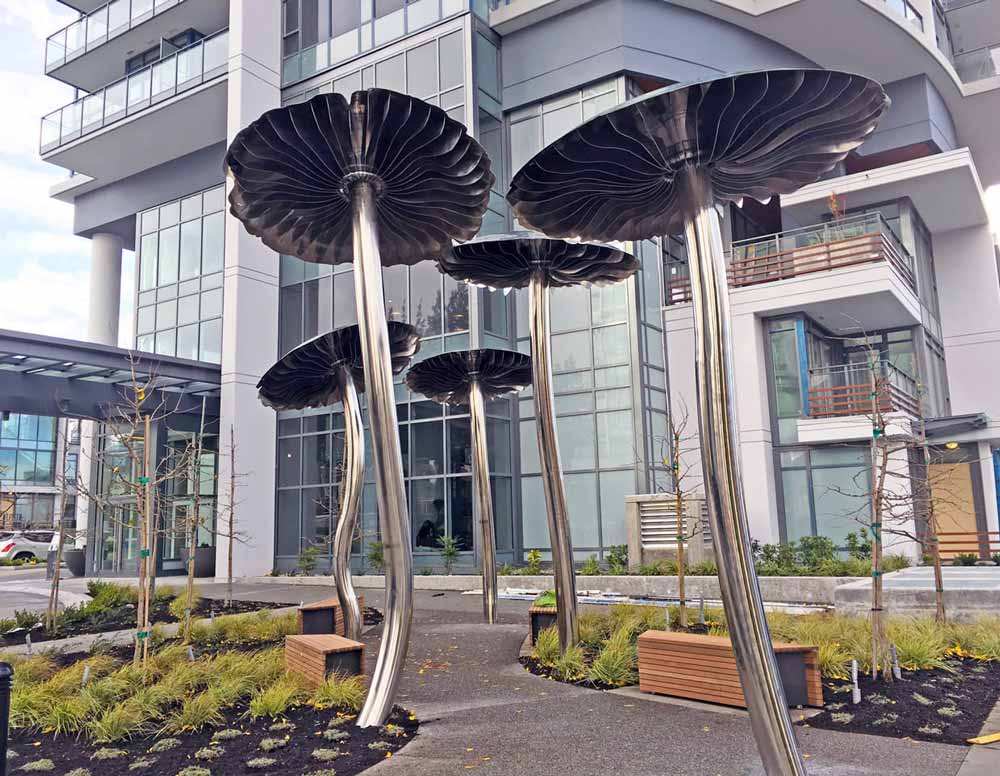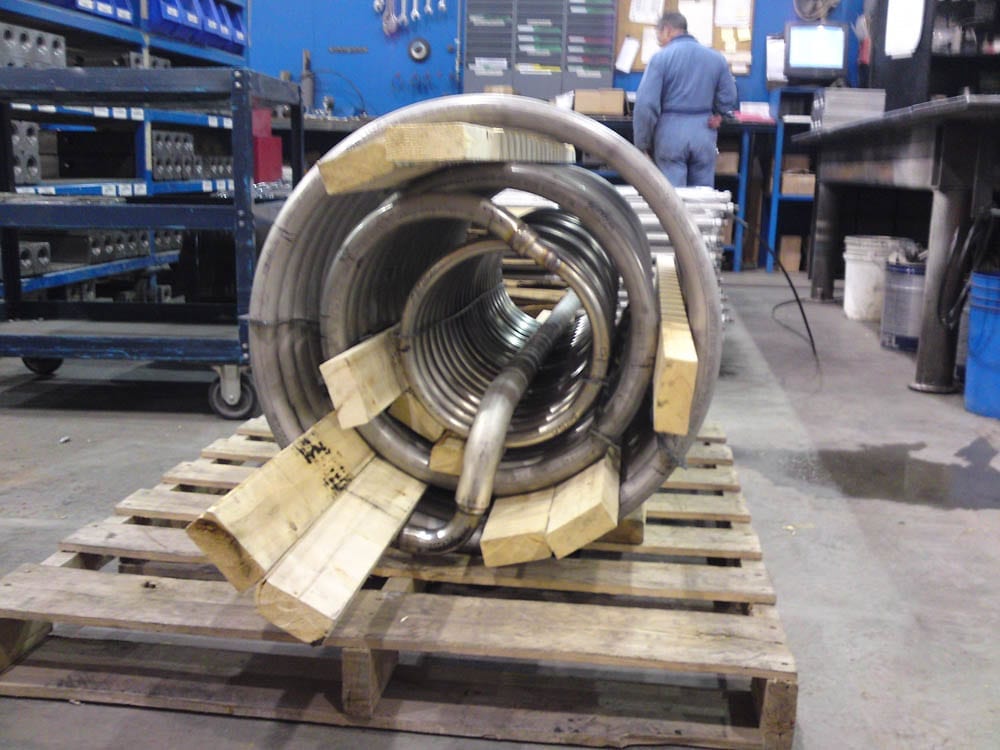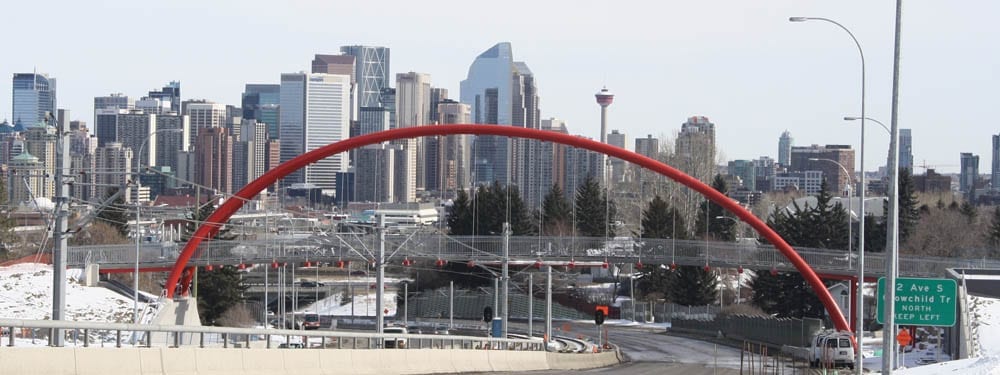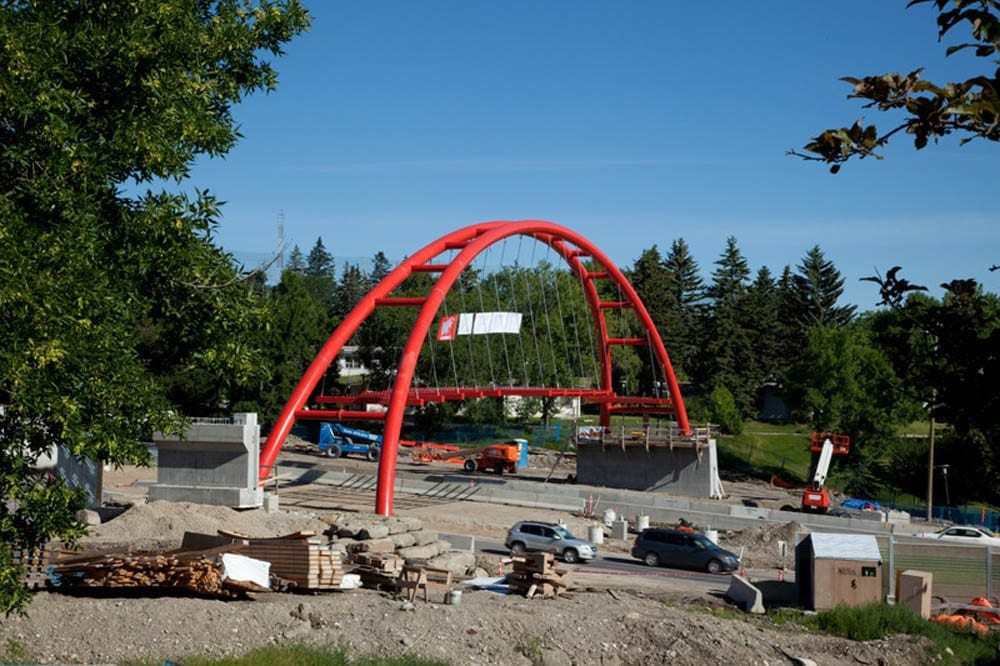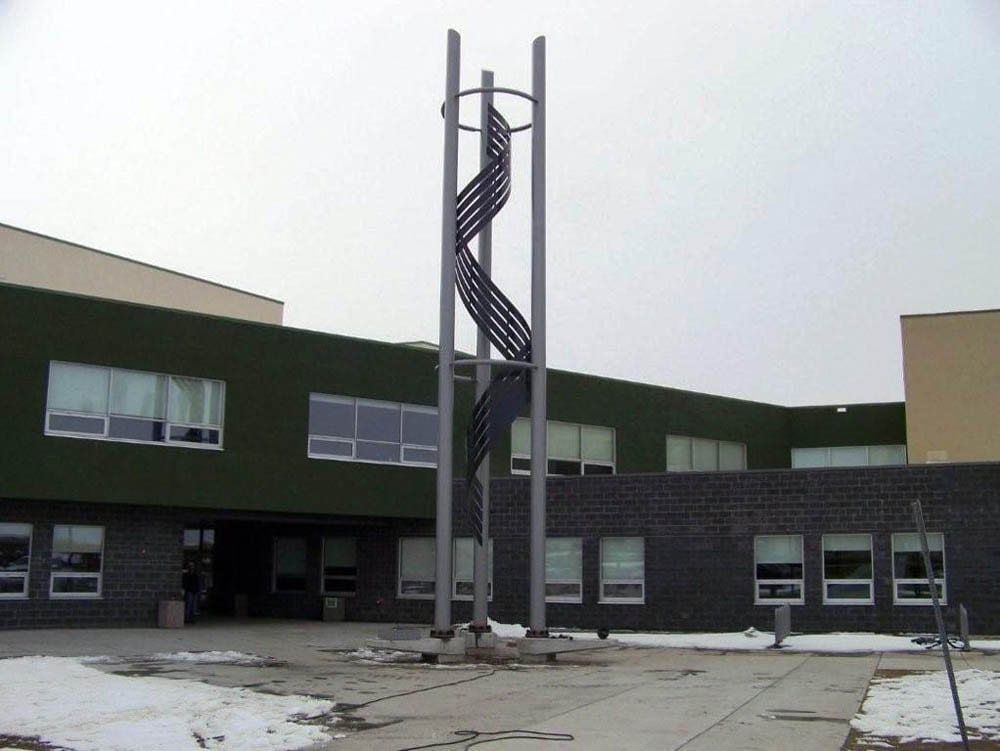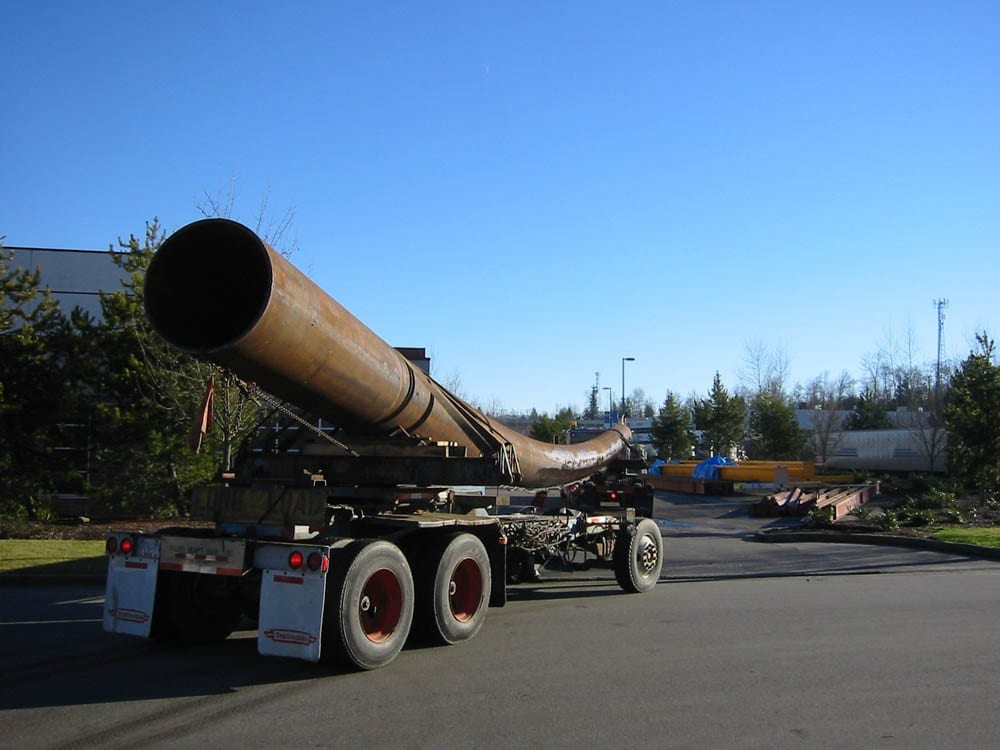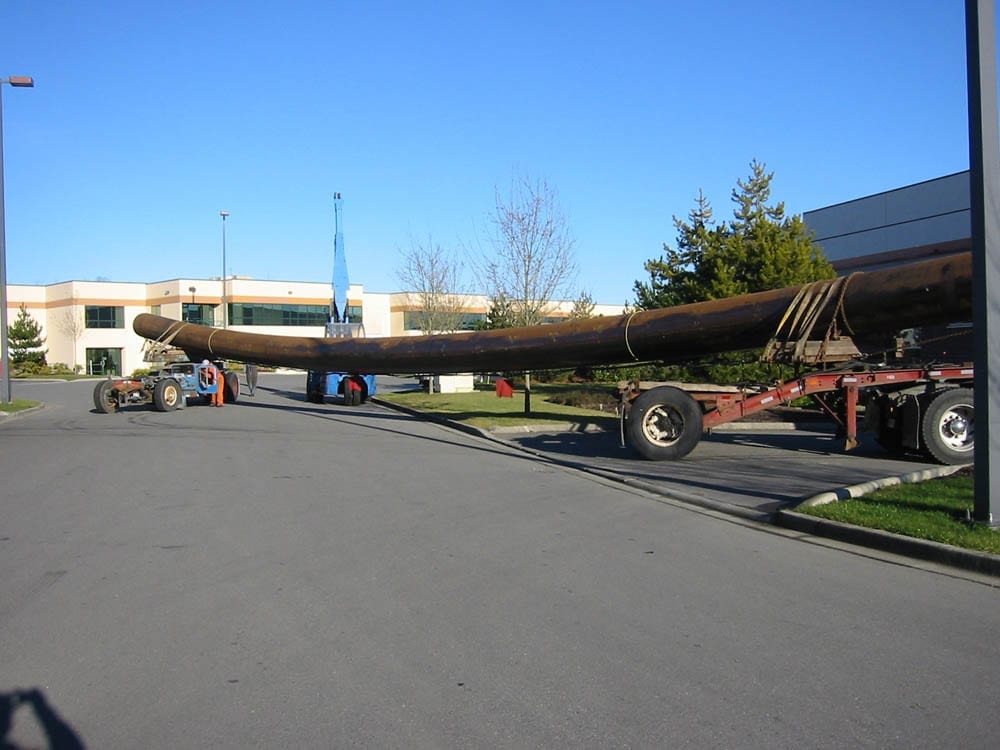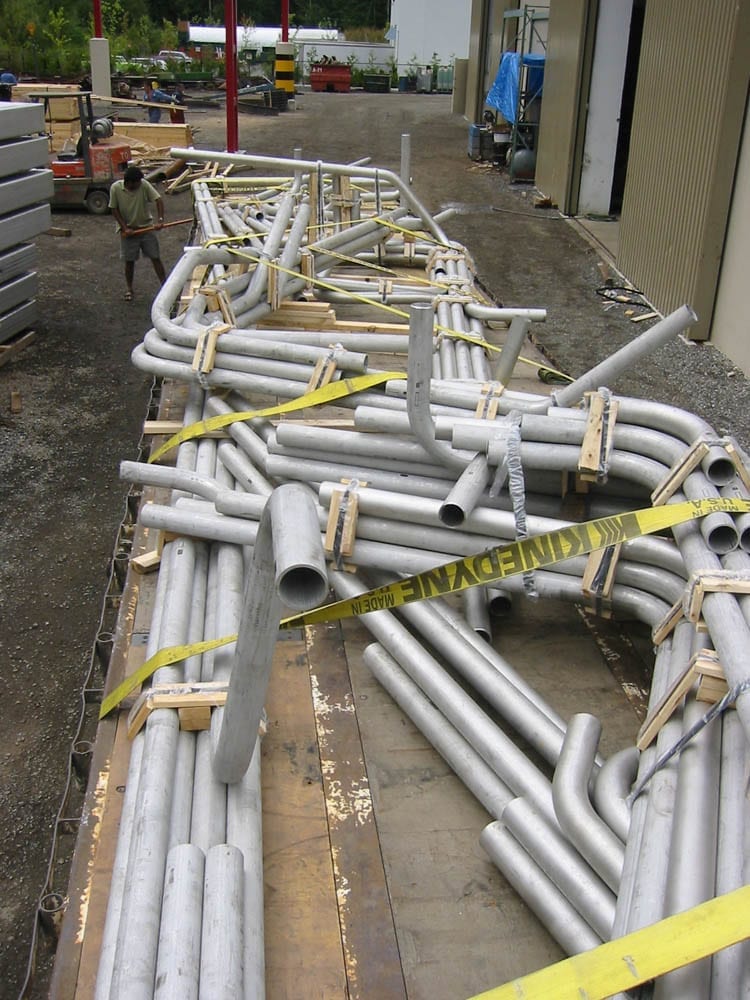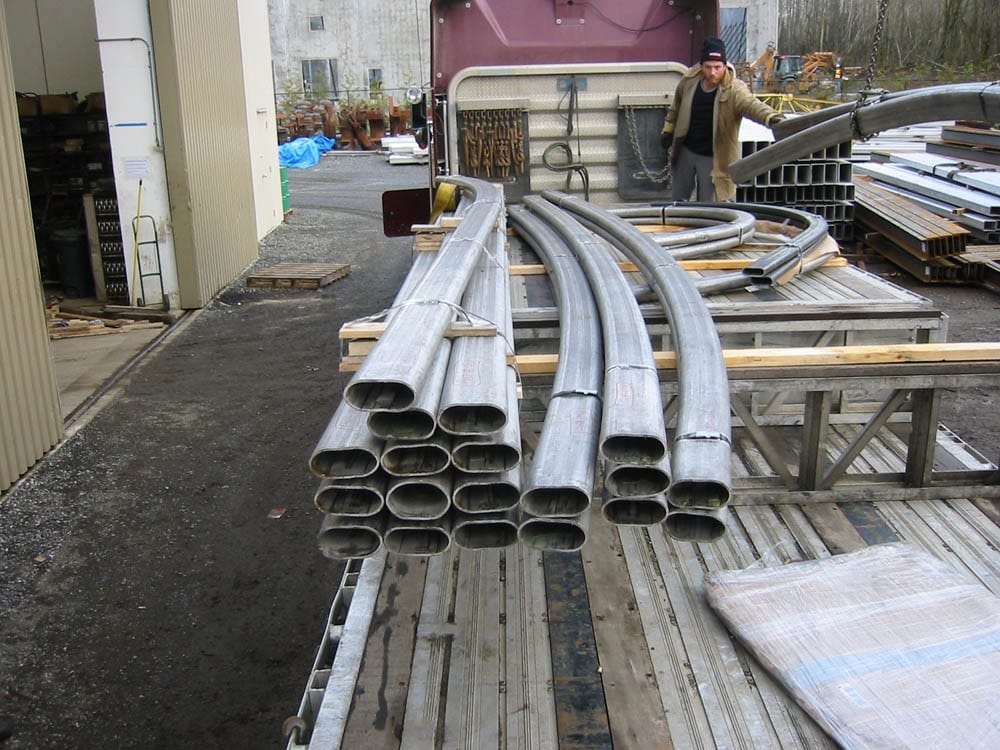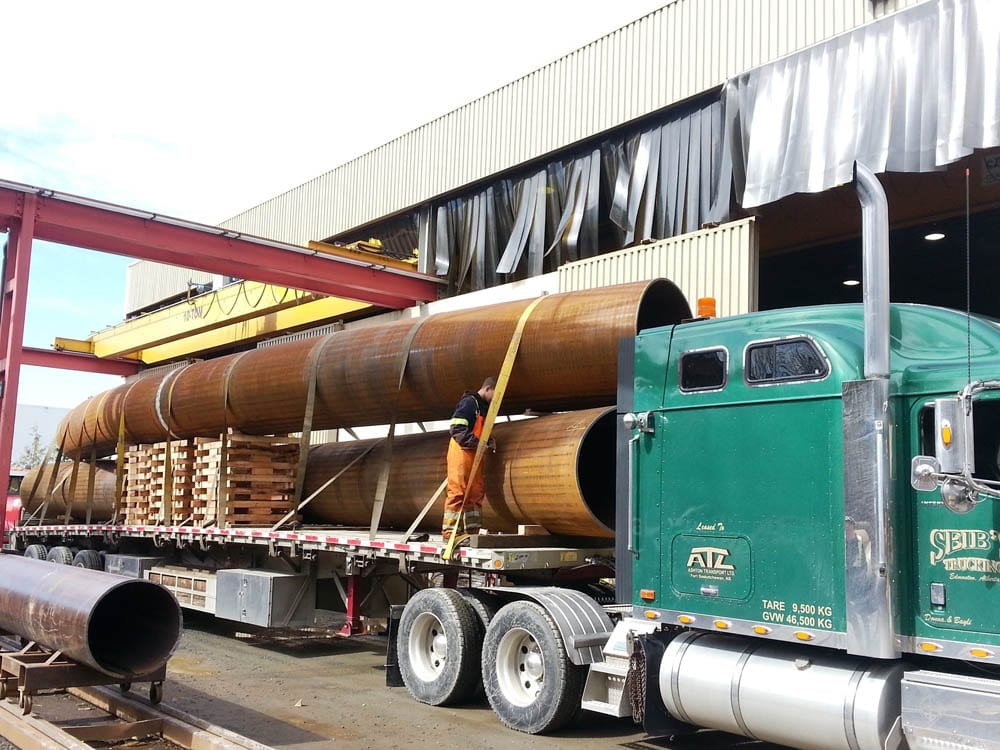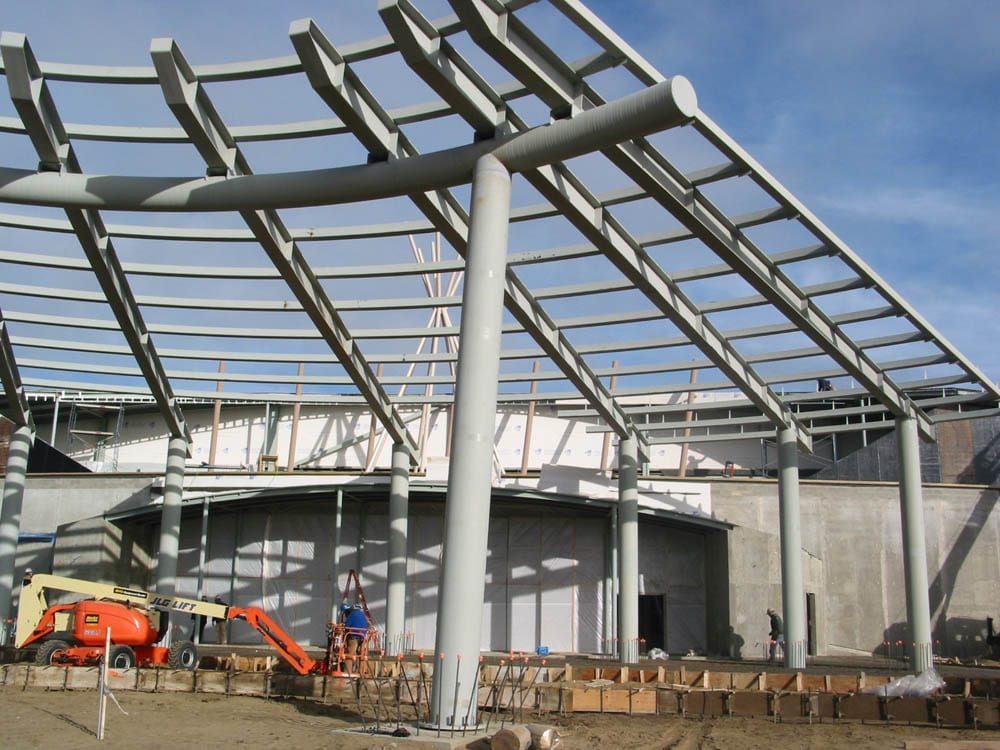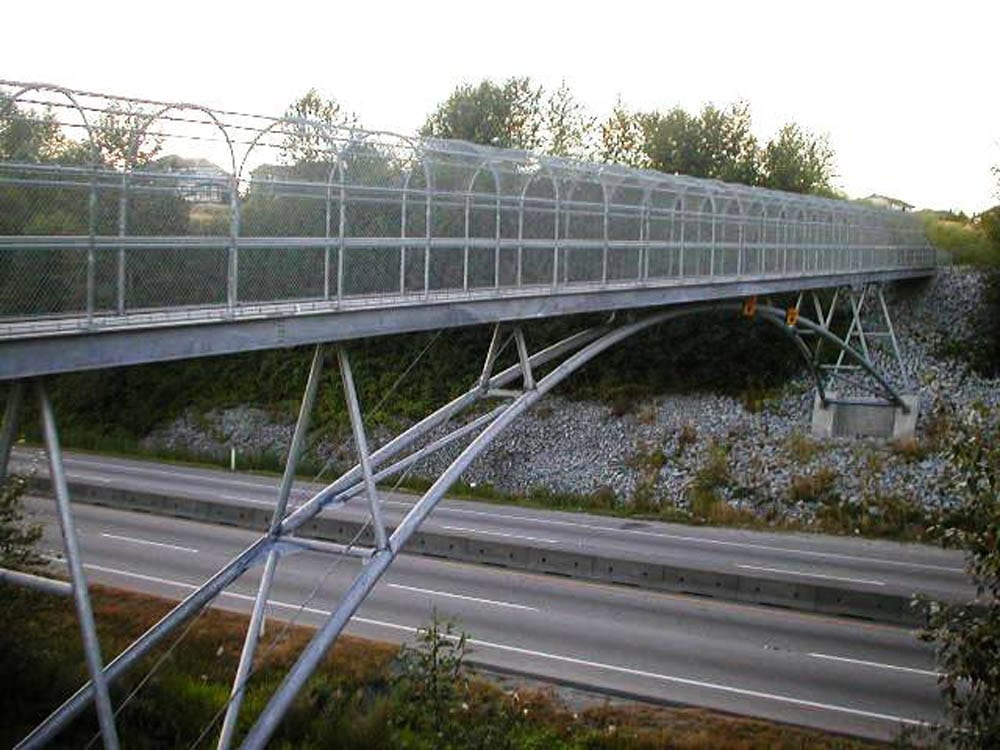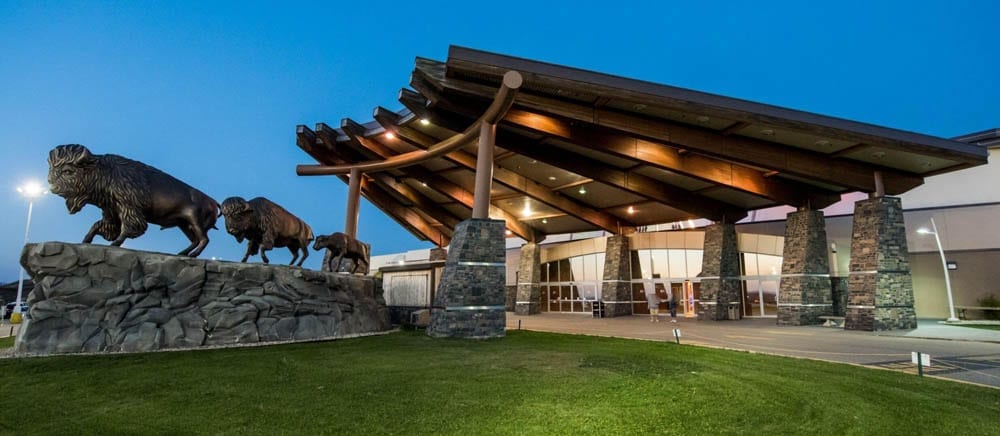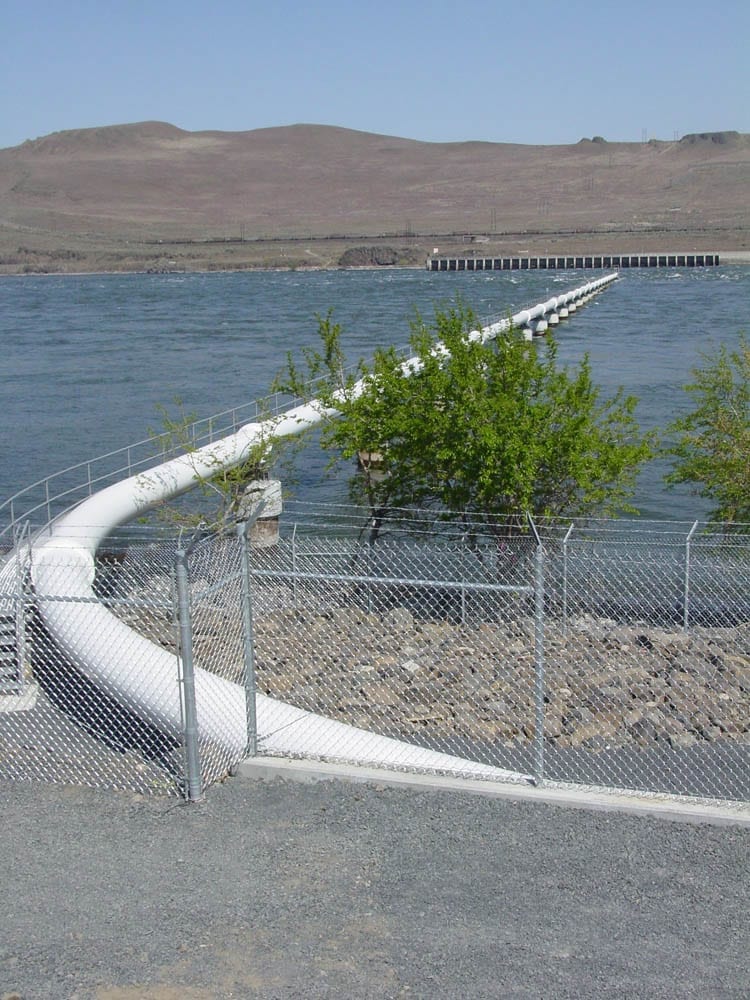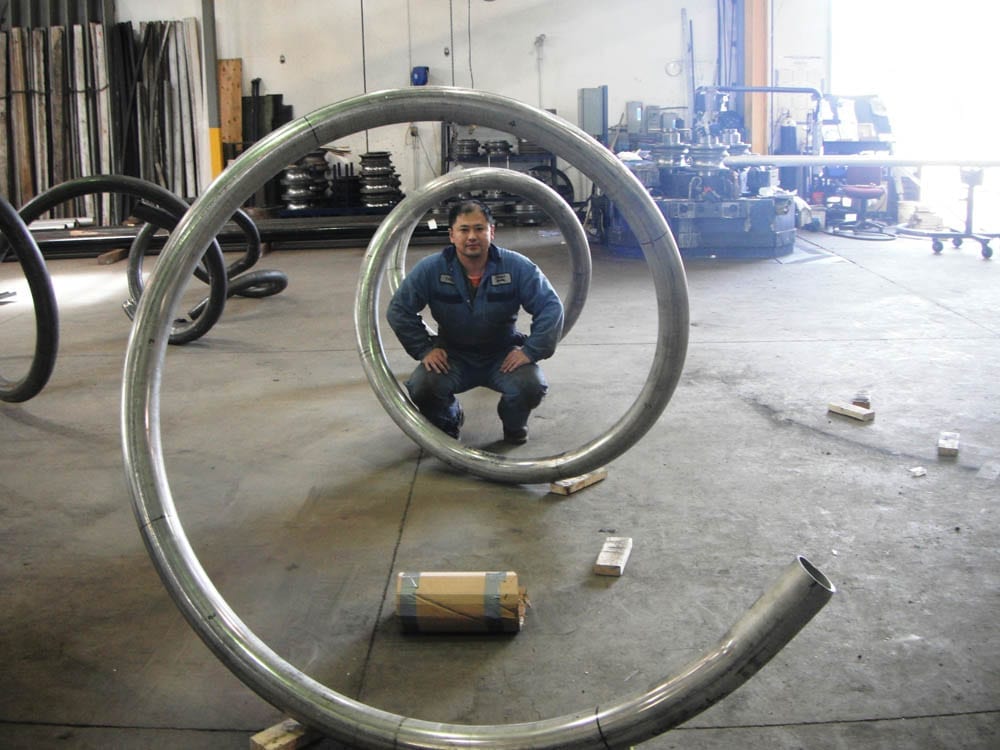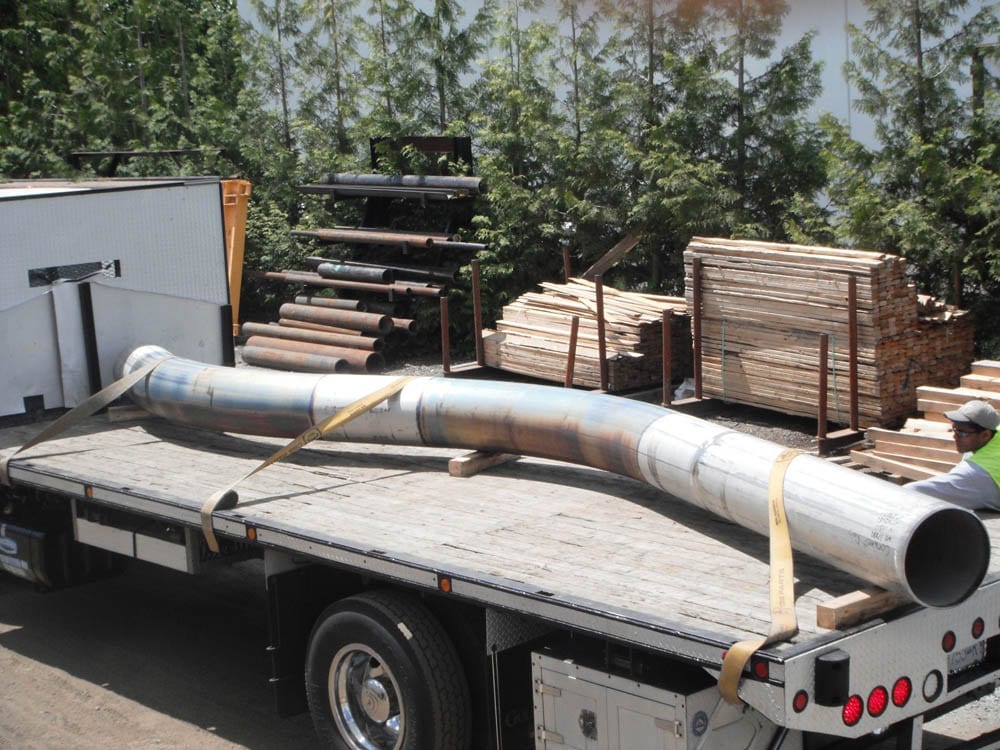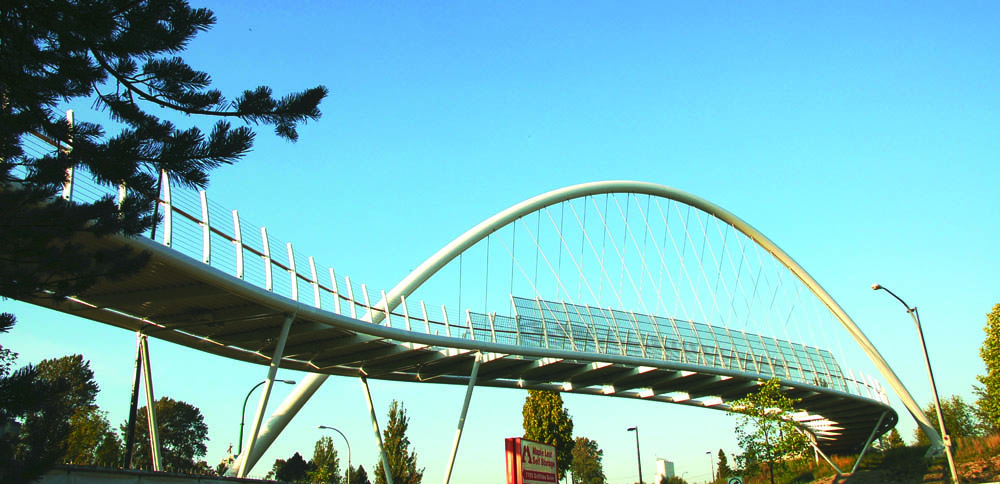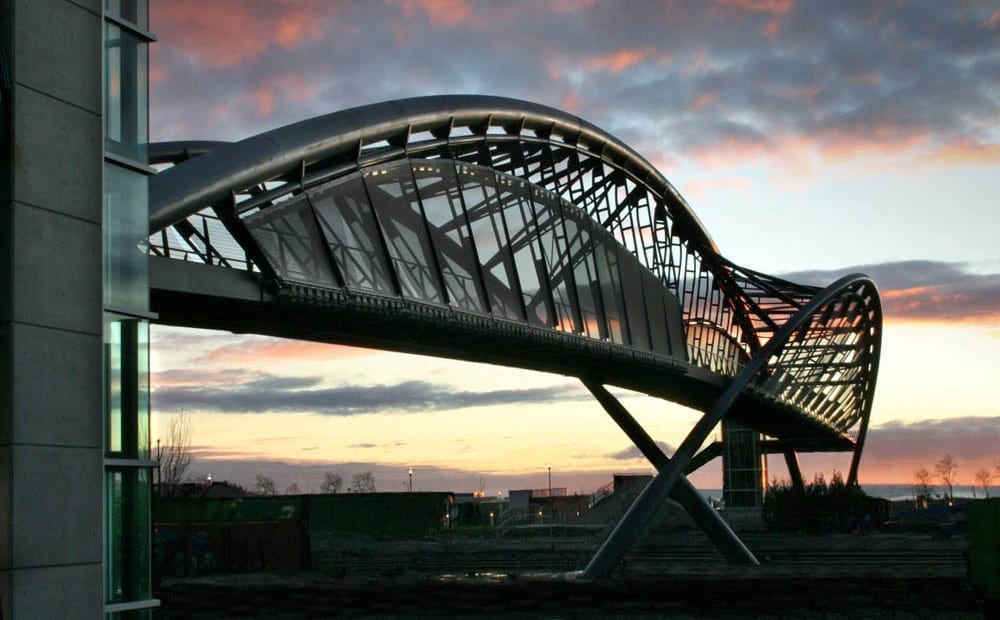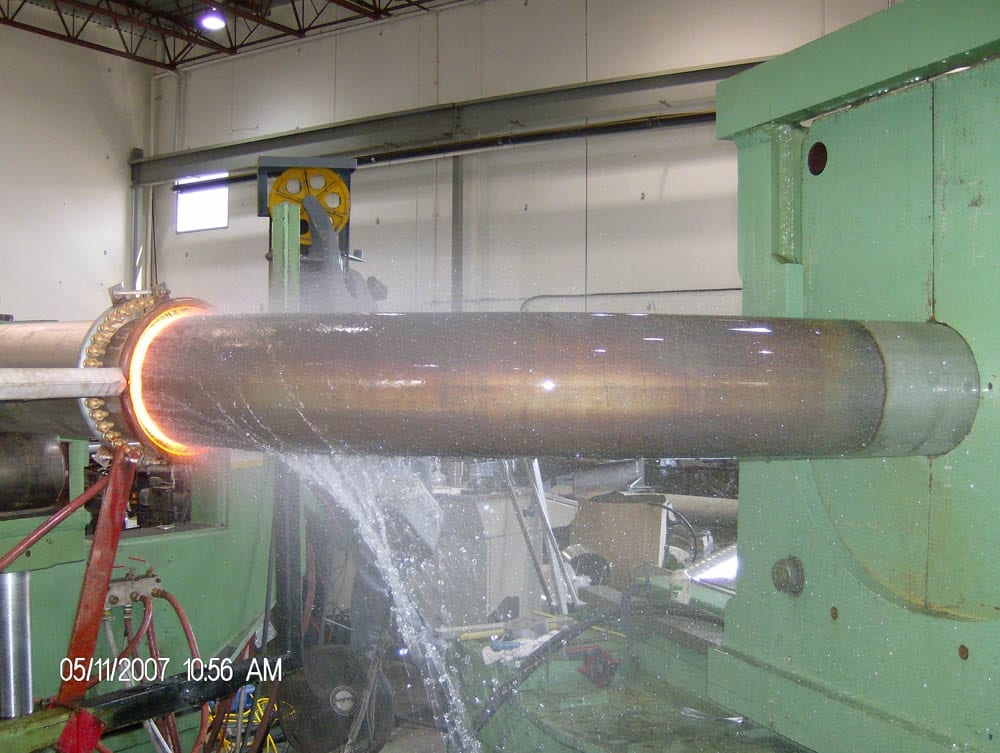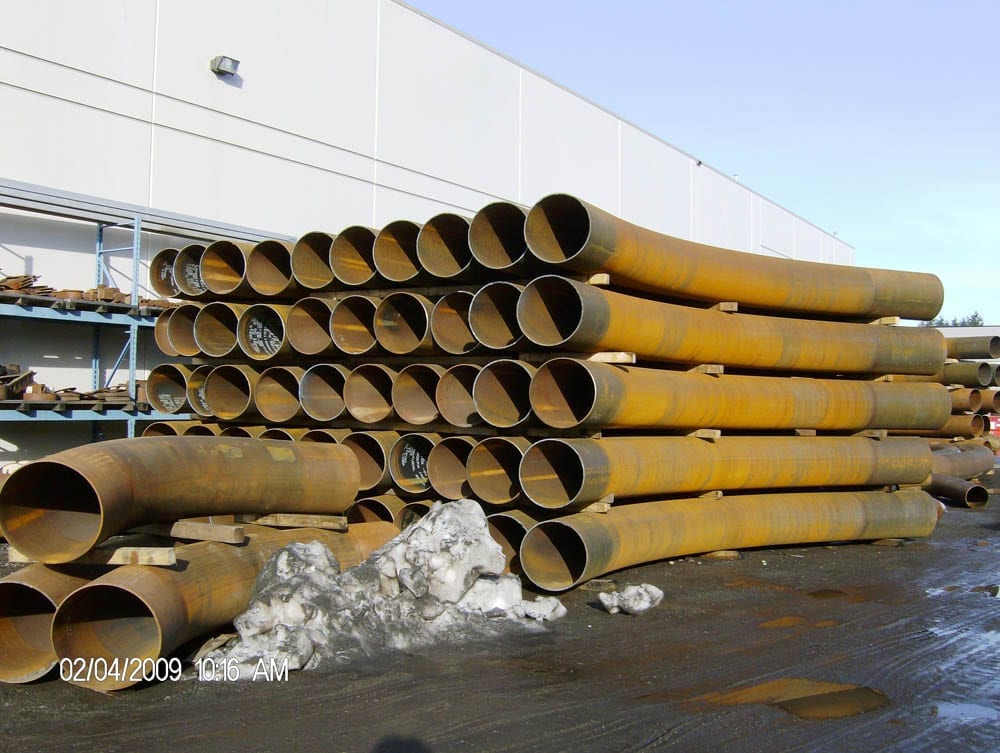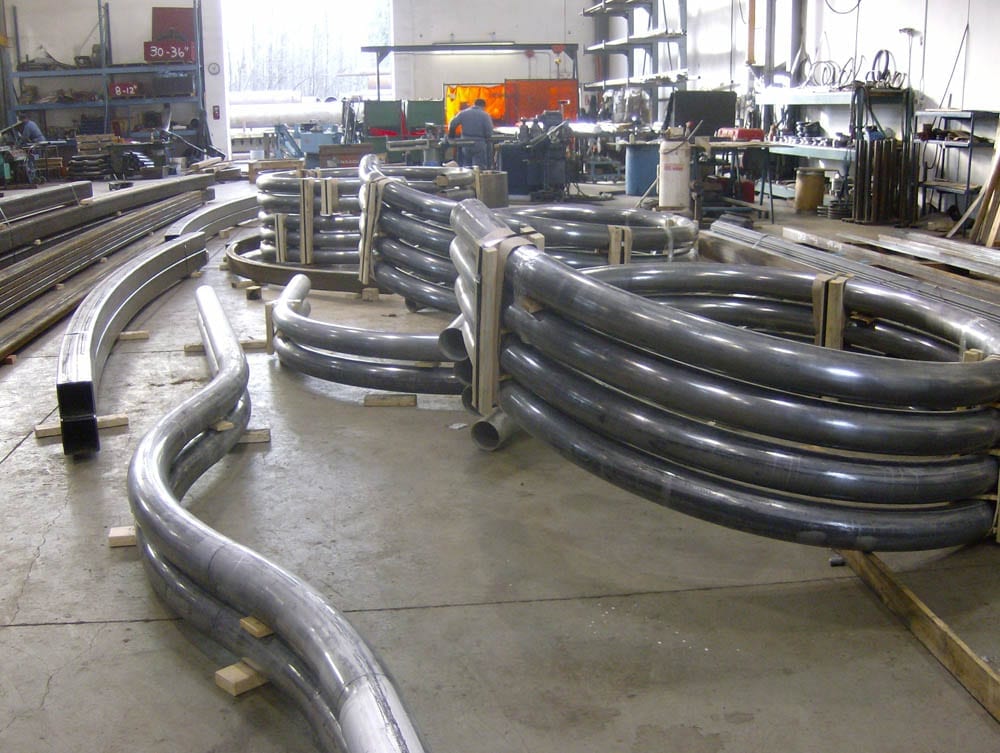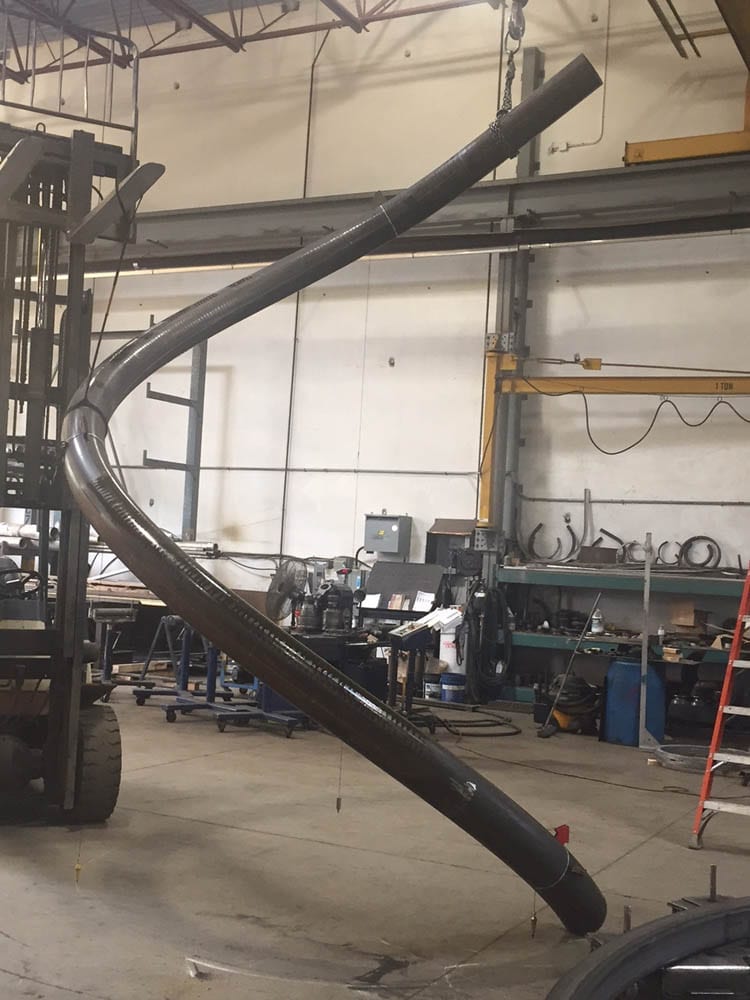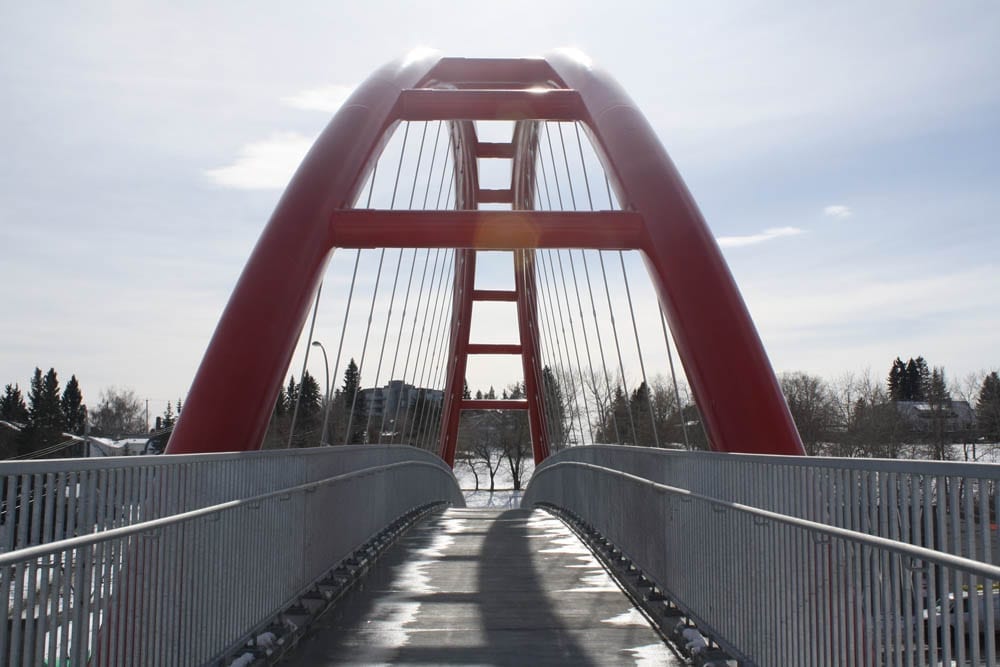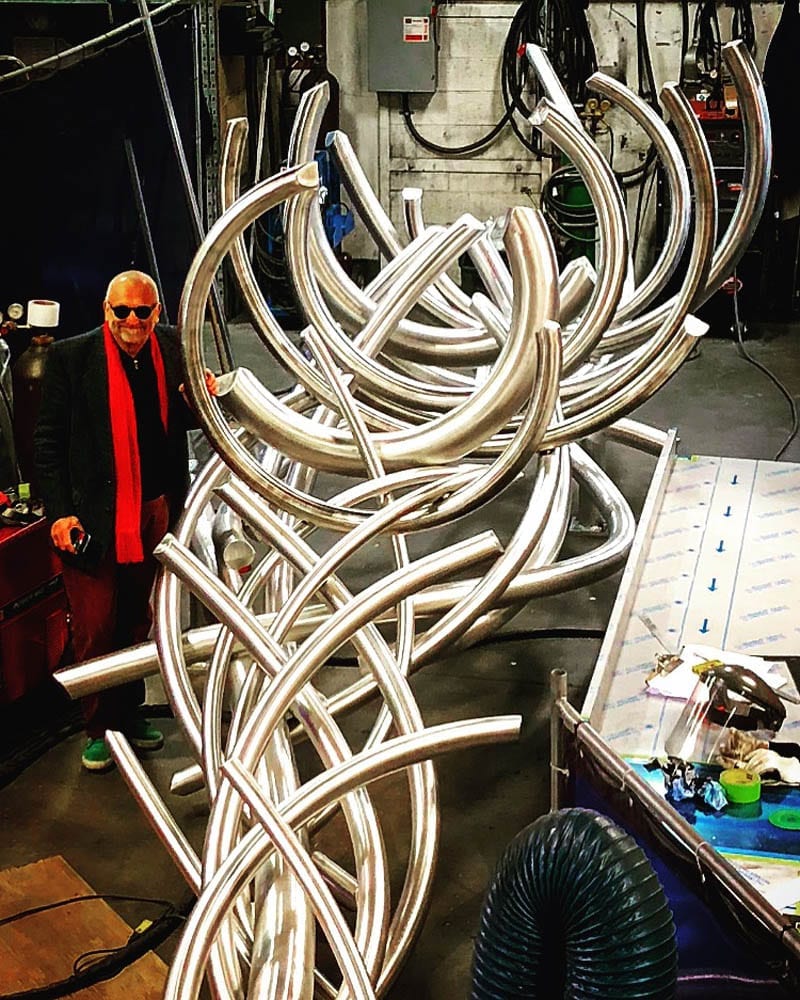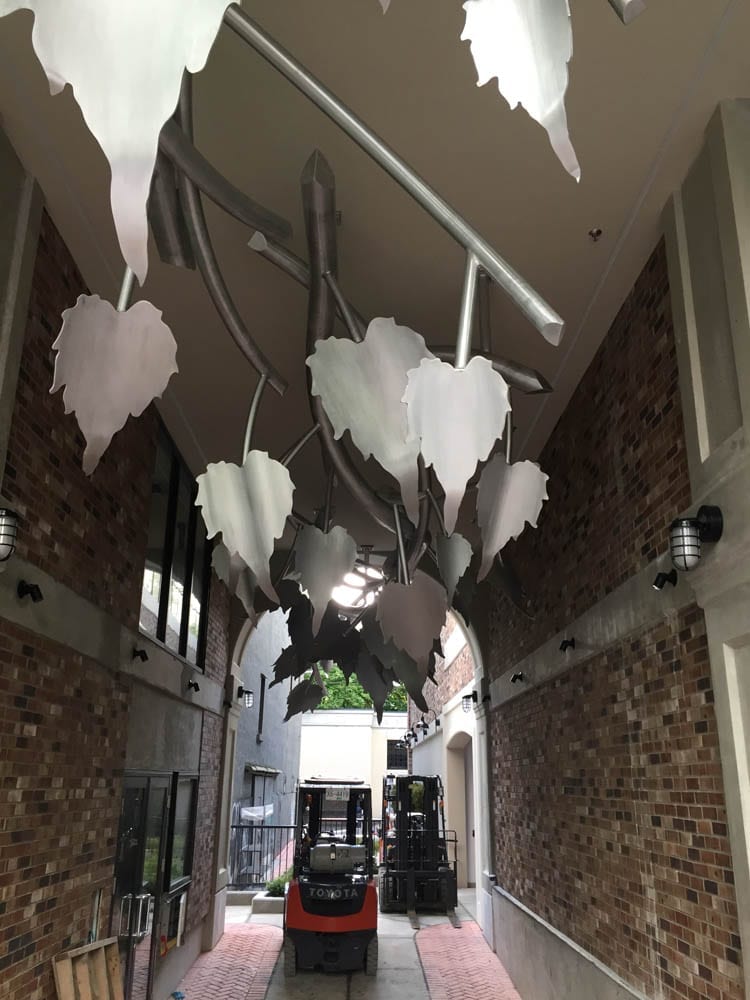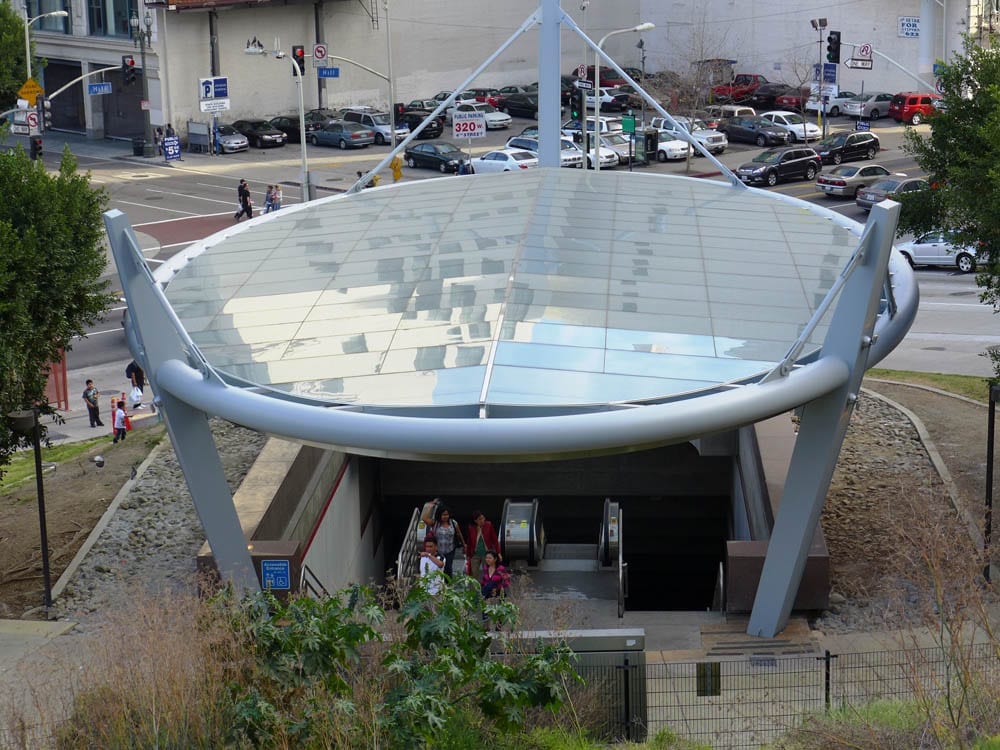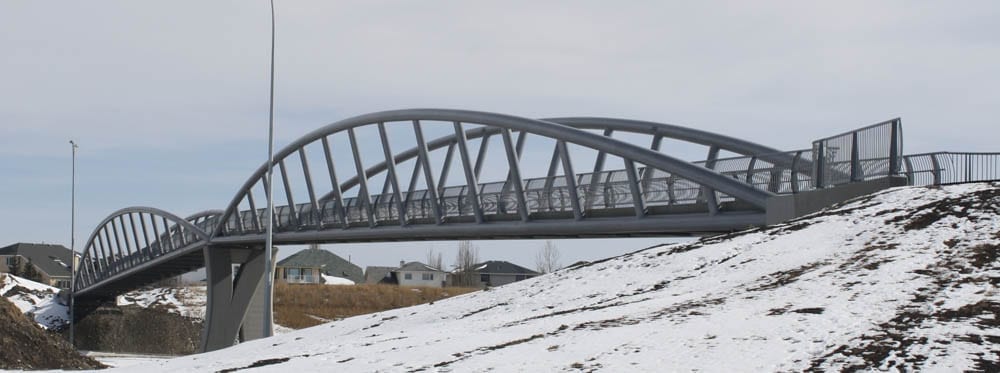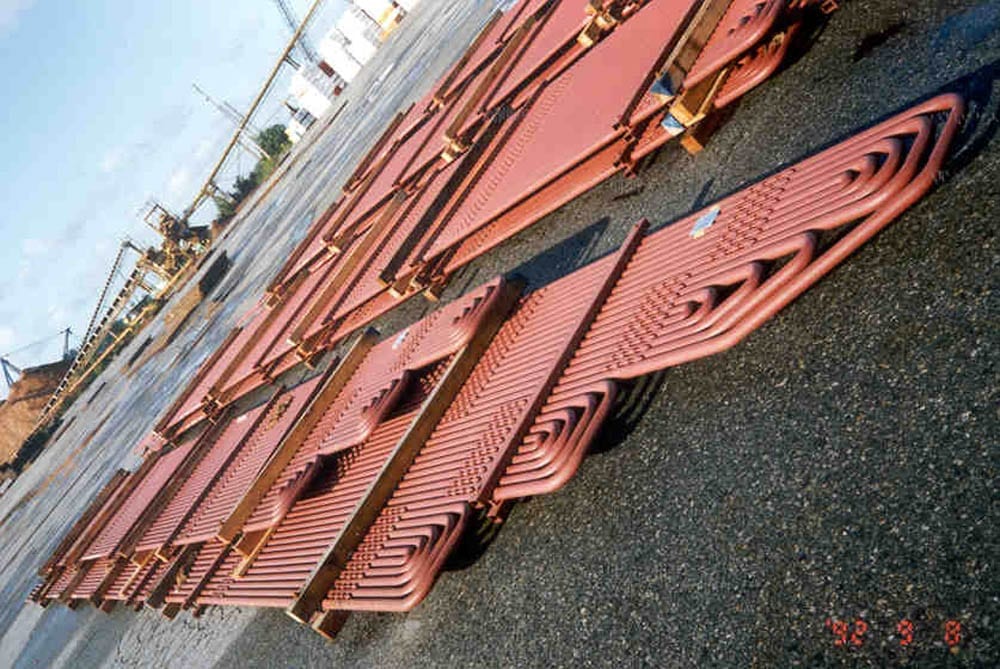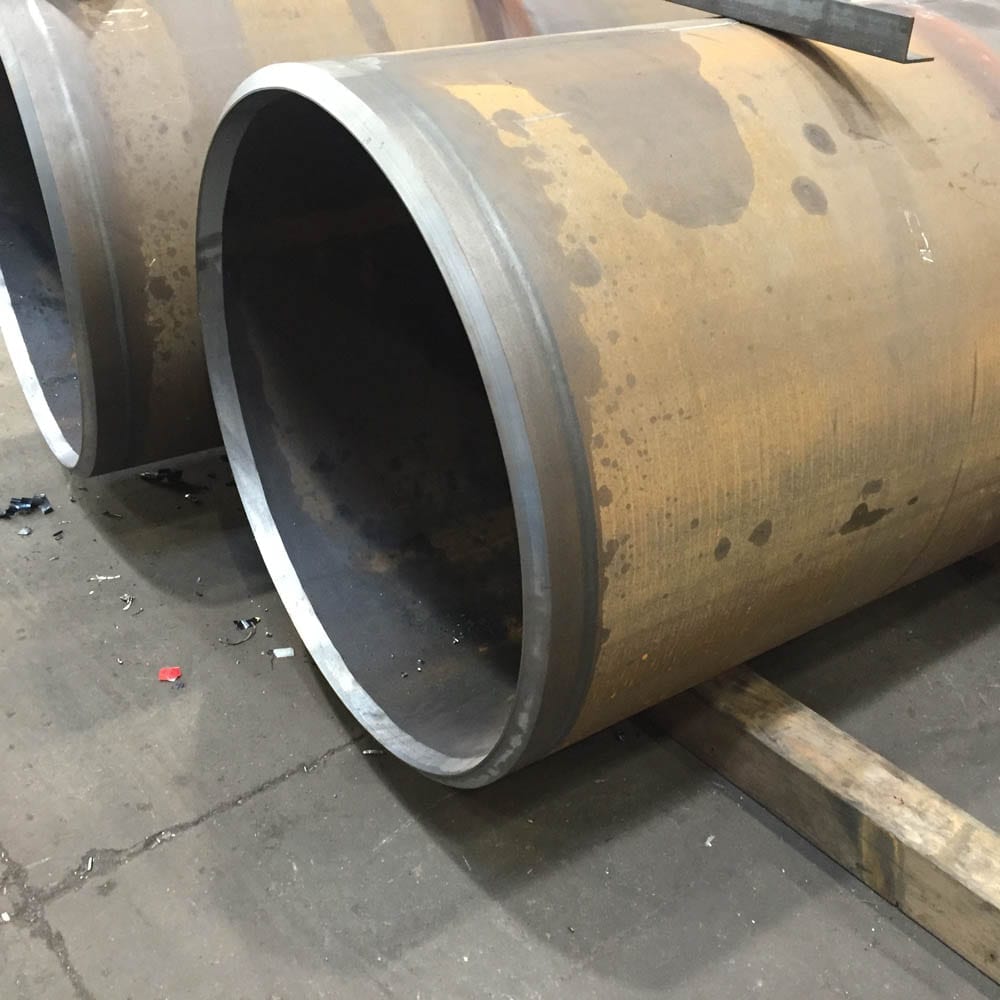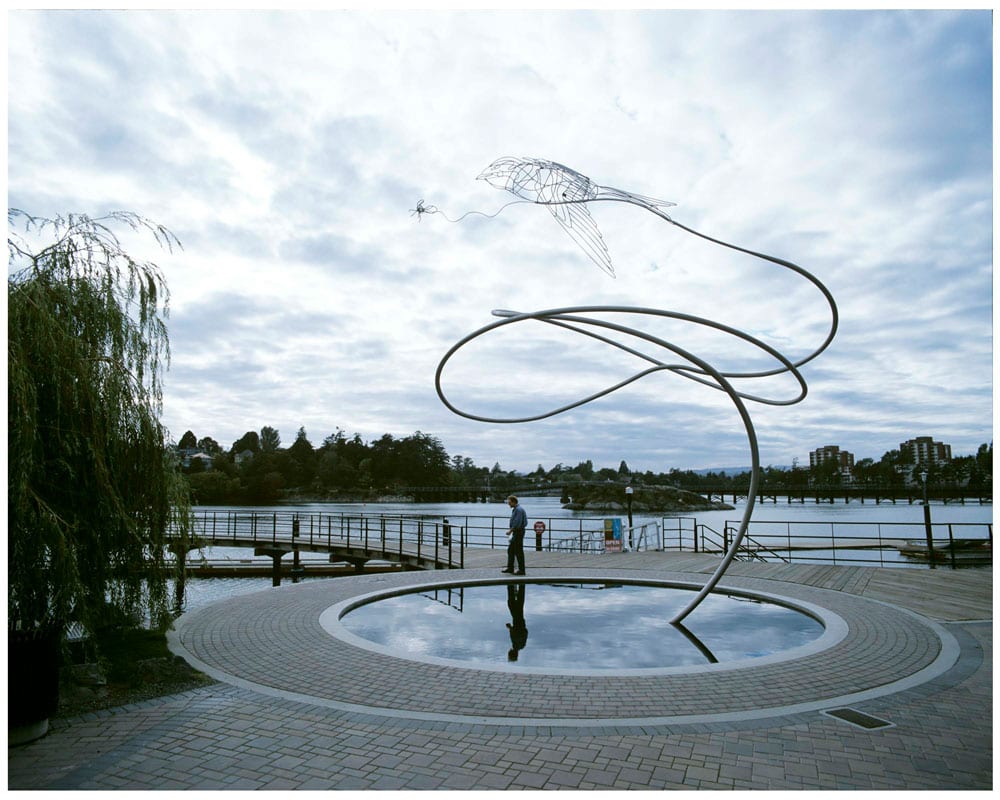At Advanced Bending Technologies, we offer cold and induction pipe bending services for customers throughout Canada and the USA, with the majority of the projects being located in Alberta. Our team has extensive experience bending pipe and tubing for a wide variety of applications, from handrails and bicycle racks to industrial piping systems, instrumentation equipment as well as larger structures such as tied-arch bridges and oil/gas pipelines. Whatever your needs, our capable technical staff will work with you to ensure the specific requirements of your project are met. Contact us today and ask us for a free quote.
What’s cold pipe bending?
Cold pipe bending is the process of forming piping into the desired shape at room temperature. Shipbuilders, railroads and automobile manufacturers often use cold-bent pipe products. In addition, the petrochemical industry routinely requires cold bends in energy pipelines to change the vertical and horizontal orientations of the pipeline route.
At Advanced Bending Technologies, our experienced staff can provide precision bending on various materials, everything from plain carbon steel to exotic alloys, brass, aluminum, titanium and stainless steel. Our team can also create compound bends reducing the need for labor intense welding of fittings.
We constantly upgrade our tooling and specialized bending equipment to ensure we keep pace with the ever-changing needs of our customers. We offer two different kinds of standard cold pipe bending:
Roll Bending
Roll bending is done with a mechanical jig that uses three rollers to bend the pipe into a circular arc. We can roll bend standard pipe sizes up to a nominal pipe size (NPS) of 10 inches with a radius of 36 inches or larger and an angle of up to 360 degrees.
Rotary Draw Bender
Rotary draw bending involves drawing the outside diameter of the pipe over a form to reach the desired bend radius. Our team can do rotary draw bending for standard pipe sizes up to a nominal pipe size (NPS) of 10 inches with a radius as tight as 2D and an angle of up to 180 degrees.
Custom-Built Bender
We also offer custom pipe bending on all pipe sizes with an outside diameter (OD) of up to 48 inches with a one-inch wall.
Advantages of cold pipe bending
Cold pipe bending is done at room temperature. This gives you the advantage of not having to wait for the material to heat up or cool down, saving a considerable amount of time. In addition, the finished surface of the material is smooth and has very few deformations and imperfections.
It’s possible to cold bend various materials and thicknesses. For example, cold bending is the best option for helical coils and submerged piping where you can’t risk heating the material and compromising its structural integrity.
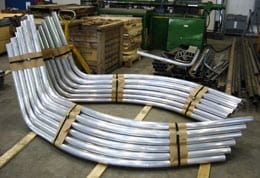
Multiple Bends in Aluminum Pipe
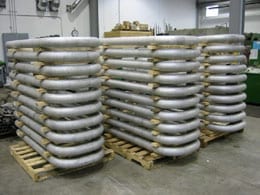
High precision bends in stainless steel tubing
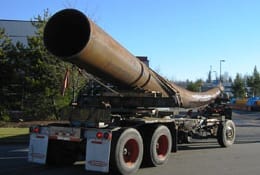
36″ diameter pipe on its way to the fabrication
What’s induction pipe bending?
Induction pipe bending employs a combination of electrically induced heat and mechanical force to form piping into the desired shape. Since the pipe is pushed rather than pulled around a radius, you can avoid many common quality issues, such as excessive ovality and wall thinning. Only induction pipe bending can provide the quality, consistency and repeatability demanded by our customers in the energy sector.
Our team regularly performs high-precision induction bends in carbon, alloy and stainless steels up to 48 inches in diameter. We can create induction bends in various standard angles or make custom-bent angles to suit your needs.
When making induction bends, our team measures and records the following information to ensure our customers get the highest quality finished product:
Our Gaurantee
Our induction pipe bending procedures comply with the following industry codes and standards:
If other codes and standards apply, our capable technical staff will work with you to ensure that the specific requirements of your project are met.
Finally, all our high-precision induction pipe bends are thoroughly inspected to ensure they meet the highest quality standards and accepted tolerances.
Pipe bending experts Calgary, Alberta, with locations across Western Canada
If you need high-quality, fast and reliable pipe bending services for your next project, the expert team at Advanced Bending Technologies in Calgary, or BC, can help. We offer high-precision and tight-radius bends for a variety of piping materials. Our team will help you determine whether cold or induction bending is right for your project. Contact us today for a free quote.
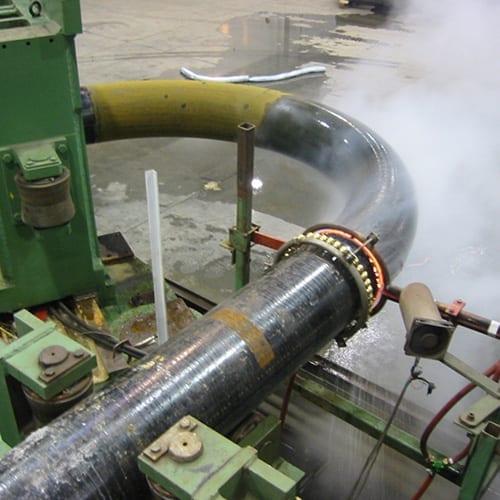
Induction Bender
